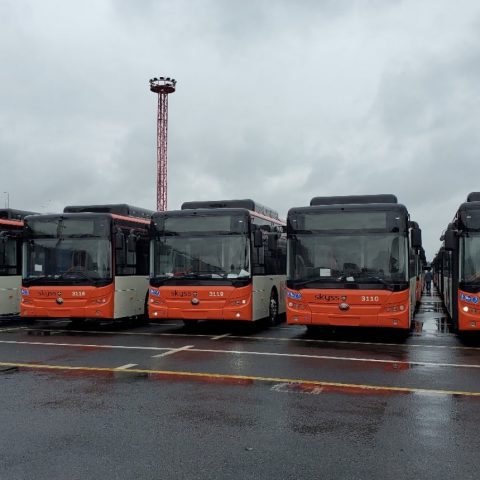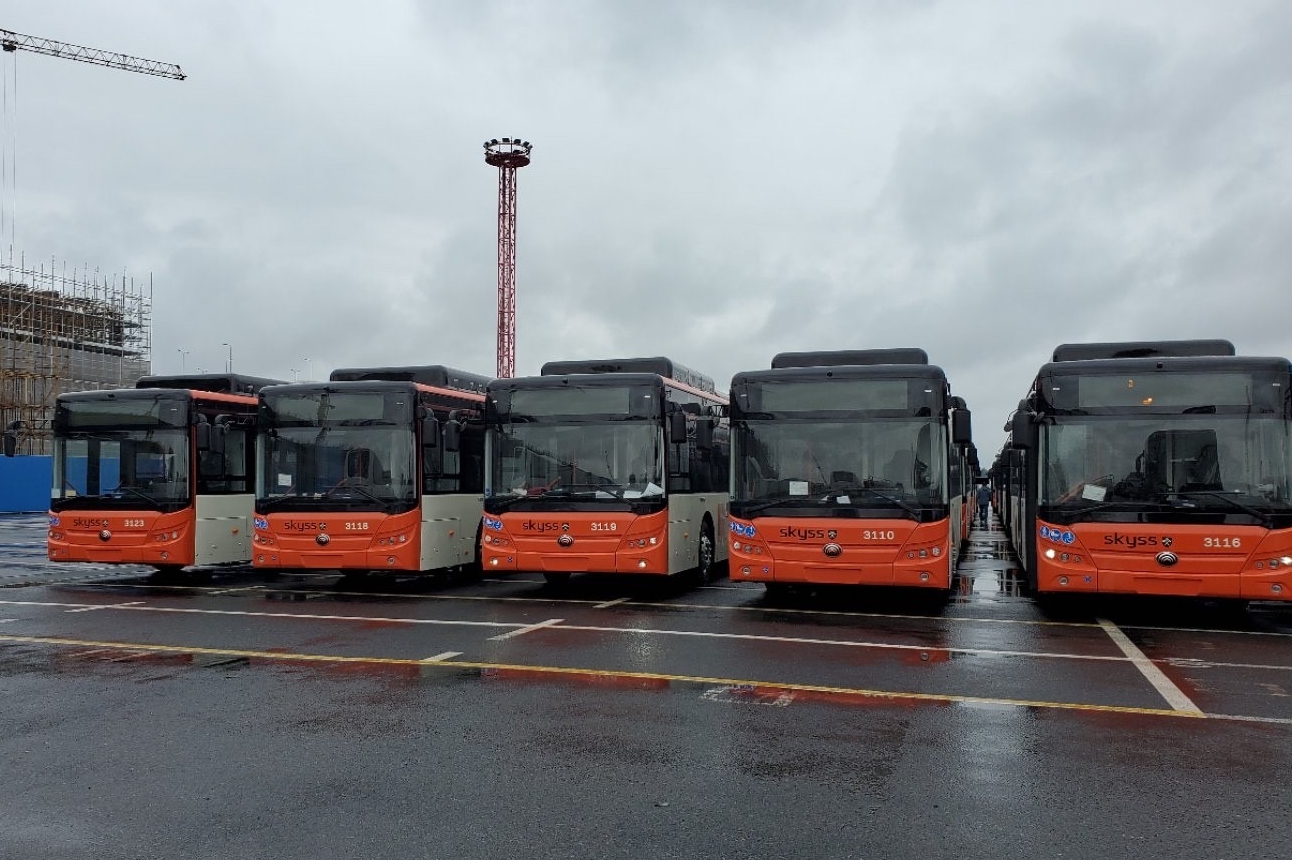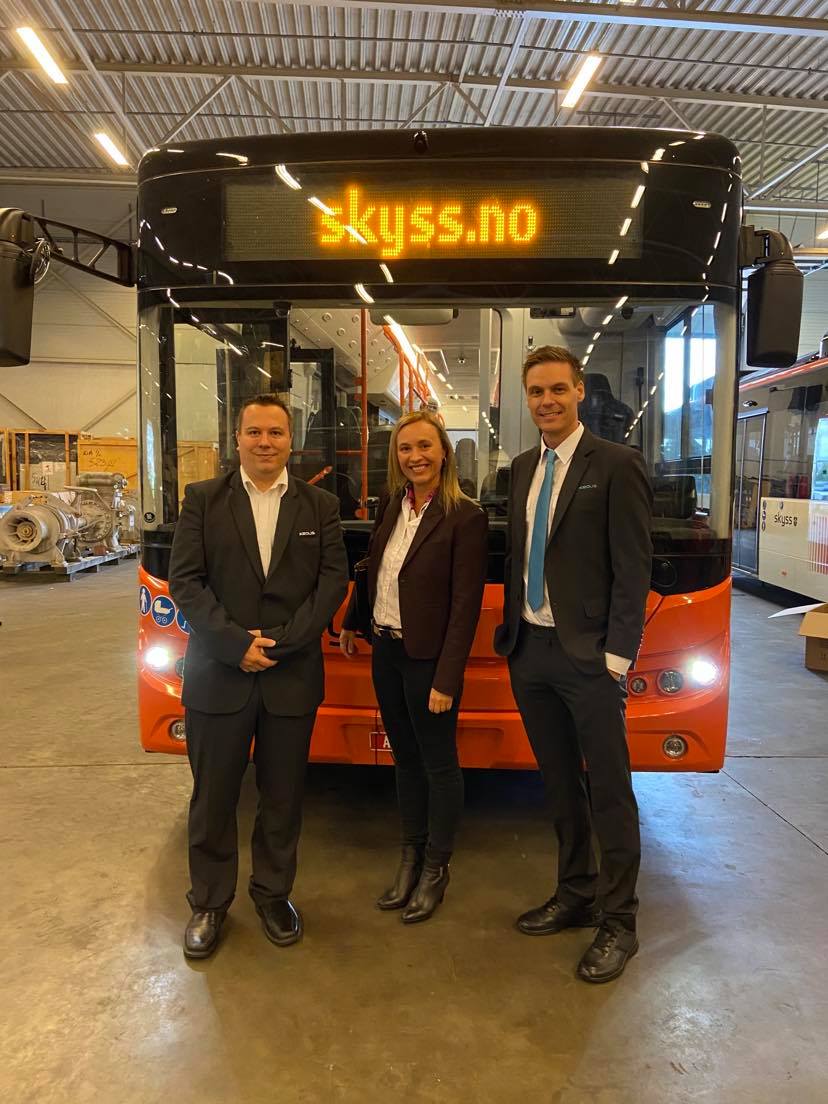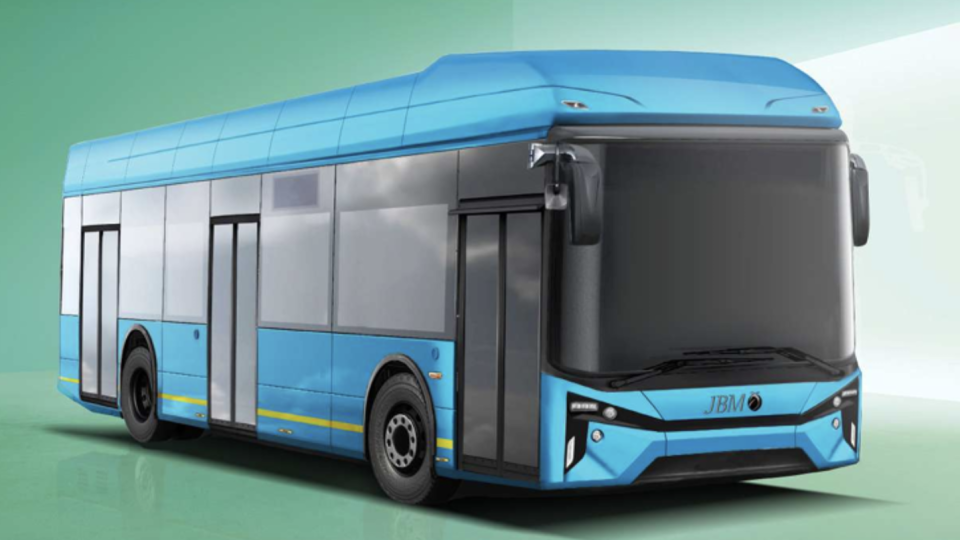The first 29 Yutong e-buses have reached Bergen. Keolis to operate 102 vehicles
On 10 September, the first batch of 29 electric buses arrived in Bergen as part of a contract awarded by Bergen’s Skyss public transport authority for Keolis to operate and maintain 138 fossil-free buses, including 102 all-electric vehicles, awarded to Yutong. The all-electric buses are being shipped from Shanghai in three batches and are due […]

On 10 September, the first batch of 29 electric buses arrived in Bergen as part of a contract awarded by Bergen’s Skyss public transport authority for Keolis to operate and maintain 138 fossil-free buses, including 102 all-electric vehicles, awarded to Yutong. The all-electric buses are being shipped from Shanghai in three batches and are due to arrive in Bergen by the end of September 2020.
Expected to carry 17 million passengers a year, the fossil-free buses will contribute to improving quality of life for the nearly 300,000 inhabitants of Norway’s second largest city, where Keolis already operates the light rail network.

Yutong e-buses in Bergen
Featuring 88 12 metre-long buses and 14 15 metre- long buses, Yutong vehicles will offer 7 to 10 hours of autonomy depending on operating conditions, Keolis points out. The shift from diesel to electric vehicles will reduce CO2 emissions by approximately 85% over the duration of the bus contract. Each diesel bus replaced with an all-electric alternative will save about 50 tonnes of CO2 per year.
The buses are temporarily parked in a parking lot in Bergen and will be transferred to the Mannsverk depot, scheduled to open in early November 2020, where work is underway to install the recharging infrastructure.
The nine and a half year contract for the operation and maintenance of 138 fossil-fuel-free buses, which also includes 10 trolley buses made by Solaris and 26 HVO buses made by Volvo, was awarded to Keolis on 17 June 2019. The management team has been recruited and 285 full-time drivers are being voluntarily transferred from the incumbent operator or recruited externally. The bus drivers will start operations on 1 December 2020 after completing their training programme.








